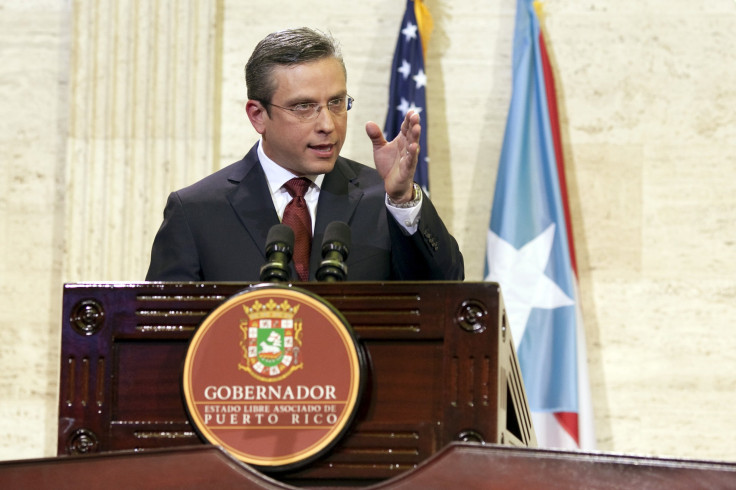Puerto Rico Default: Businesses Brace For Tighter Squeeze As Island Heads Into Uncharted Waters

Joey Carmona, the owner of locksmith and security services company Exolock, based in Fajardo, Puerto Rico, considers his business one of the few fortunate ones on the island. He's actually taken on more work in recent months as smaller businesses have folded under financial strain. "We've got work. I can't complain, but we're one of the lucky businesses," he said.
Still, he's had to make adjustments to deal with rising electricity bills and gas prices as Puerto Rico's government has scrambled to remain afloat in the face of a severe budget shortfall. Carmona replaced the company’s larger vehicles with smaller ones that have better gas mileage and revamped their travel routes to deliver services more efficiently. But even while he and the seven employees that work for him are weathering the storm, Carmona said an exit strategy isn’t out of the question. “I’m leaving my options open, and I’ve got a piggy bank just in case [I have to leave],” he said. “I lived in the States for some time, so I’m not afraid of moving. But I hope we can stay.”
That wariness has spread throughout the island as Puerto Rico continues to struggle with rampant economic woes. The commonwealth’s government, led by Gov. Alejandro Padilla, missed a critical deadline Saturday to make a $58 million bond payment and stave off default. They technically had until midnight Monday to make the payment, but Padilla had already announced the government didn’t have the funds, as it’s already operating on a $703 million budget deficit for this fiscal year. Puerto Rico now faces a potential onslaught of lawsuits from creditors over how the money can eventually be repaid. In the meantime, Puerto Rican business owners and residents were bracing for further squeezes on their economic livelihoods.
Those living on the island have been feeling the pinch for years: Unemployment stands at 12.2 percent, and the government has made painful cuts in the public education and health sectors to rein in its budget. Last month it hiked up the sales tax from 7 percent to 11.5 percent, and there's a new 4 percent tax on business-to-business services set to take effect in October. The island’s rocky future has propelled thousands to leave the island in recent years, heading to places like New York or central Florida in search of better opportunities.
A default could be a good way to force Padilla’s government to undergo some needed restructuring and potentially privatization for the public utilities, which hold the largest amounts of debt, Carmona said. “They need to cut government by like a third or two thirds and make it efficient,” he said. “They killed the goose that laid the golden egg.”
The past year has been brutal for Victor, the president of a women's clothing chain who requested keeping his last name and the name of his company private. He’s had to close 10 of his 15 stores and lay off around 100 employees, while sales this year decreased by around 15 percent compared to the year before. “Instead of helping, the government is killing small businesses,” he said. “The situation here is very critical. If you’re here and in the industry, you feel it.”

The exodus of Puerto Ricans has steadily chipped away at his customer base while those left on the island have opted to make their purchases on Amazon or eBay to avoid the rising sales taxes, exacerbating both the government’s revenue problem and his company’s financial squeeze, he said. “Before, people went to shopping centers almost every day. They like to buy; that’s part of the culture,” Victor said. “But you don’t see it anymore.”
Yumare Rivera, the owner of the Barbiere hair salon, based in the capital, San Juan, opened up her shop just over six months ago, but said she hasn’t felt the financial pinch yet. Her clientele is taking the crisis in stride, she said. “People around me know it’s going to affect us, but it’s like, life keeps going, and what are we going to do?” she said.
Victor pointed to a bloated, inefficient government as the source for the island’s current fiscal woes. “It’s a very big government for such a small island,” he said. “And the people who work [for the government], most of them are not effective. They live off of whatever the government gives.”
But since his business retains contracts with shopping centers in Puerto Rico, Victor said leaving the island wasn’t in the cards for him. Meanwhile, he said a default would likely bring even more hardships. “There’s no immediate solution,” he said. “We need help.”
© Copyright IBTimes 2024. All rights reserved.






















